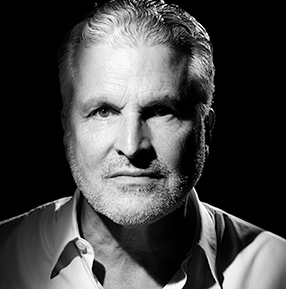Poetry of American Identity:
A Collection of Field Recordings
by Award-winning Contemporary Poets
J.D. McClatchy on Walt Whitman’s “Drum-Taps”
Transcription of Commentary
This is J. D. McClatchy, and I’m recording this on June the 11th, 2012, in the midst of the 150th anniversary of the Civil War. These four years the country is commemorating the terrible events of those days so long ago, and on June the 11th, 1862, the South was enjoying a series of stinging victories. And I have in front of me a copy of a letter that General Lee wrote to Stonewall Jackson saying,
General, your recent successes have been the cause of the liveliest joy in this army as well as in the country. The admiration excited by your skill and boldness has been constantly mingled with solicitude for your situation. The practicality of reinforcing you has been the subject of earnest consideration. It has been determined to do so at the expense of weakening this army.
And so on and so forth, as General Lee planned his great campaign.
The Civil War remains the most cataclysmic and tragic event in our history. Behind the struggle, driving its purpose and passions, loomed the greatest of issues: the fate of a country and the rights of its people. Hateful decisions were at the heart of the conflict. A Northern sense of justice and a Southern sense of honor, moral principle and emotional pride, drove men to their deaths amid the terrors of war—the deafening noise, the blinding smoke, the ground slick with blood, the cries of the fallen. Over 620,000 soldiers died during those four years, nearly as many as in all of America’s other wars combined. Proud cities were put to the torch, civilian populations were brutalized, fertile countryside was reduced to wasteland, brother fought against brother, and there was not a household in the land that did not have a loss to mourn. The very names of the fearsome battles and valiant commanders ring in people’s memories with the force of myth. The grandeur and pathos of the two shredded armies never failed to thrill. In the end, slavery would be abolished, succession defeated, and a new nation born in fire, blood, and sorrow. And each side in the conflict would discover its tragic hero: for the South, Robert E. Lee, whom I just quoted—the model Virginia gentlemen who fought for the lost cause with audacious skill and relentless determination; for the North, Abraham Lincoln, the martyred redeemer president who spoke for American democracy with an eloquence unmatched in our history. It is such stuff as epics are made on. And yet, it seems strange that no one great sweeping poem, no American Iliad, ever emerged from this most momentous event in the lives and imaginations of Americans.
Individual poets did write, of course, and we have as our substitute for an epic poem marvelous lyric takes and moral meditations by Herman Melville and, above all, Walt Whitman, whose collection in 1867 called Drum Taps brought together the poems he had written, both in the field and back in Washington, about episodes in the Civil War, in which he worked tirelessly as a nurse in the field hospitals. | MORE
Poems
Drum-Taps
Beat! Beat! Drums!
Beat! beat! drums!—blow! bugles! blow!
Through the windows—through doors—burst like a ruthless force,
Into the solemn church, and scatter the congregation,
Into the school where the scholar is studying,
Leave not the bridegroom quiet—no happiness must he have now with his bride,
Nor the peaceful farmer any peace, ploughing his field or gathering his grain,
So fierce you whirr and pound you drums—so shrill you bugles blow.
Beat! beat! drums!—blow! bugles! blow!
Over the traffic of cities—over the rumble of wheels in the streets;
Are beds prepared for sleepers at night in the houses? no sleepers must sleep
in those beds,
No bargainers’ bargains by day—no brokers or speculators—would they continue?
Would the talkers be talking? would the singer attempt to sing?
Would the lawyer rise in the court to state his case before the judge?
Then rattle quicker, heavier drums—you bugles wilder blow.
Beat! beat! drums!—blow! bugles! blow!
Make no parley—stop for no expostulation,
Mind not the timid—mind not the weeper or prayer,
Mind not the old man beseeching the young man,
Let not the child’s voice be heard, nor the mother’s entreaties,
Make even the trestles to shake the dead where they lie awaiting the hearses,
So strong you thump O terrible drums—so loud you bugles blow.
Cavalry Crossing a Ford
A line in long array where they wind betwixt green islands,
They take a serpentine course, their arms flash in the sun—hark to the musical
clank,
Behold the silvery river, in it the splashing horses loitering stop to drink,
Behold the brown-faced men, each group, each person a picture, the negligent
rest on the saddles,
Some emerge on the opposite bank, others are just entering the ford—while,
Scarlet and blue and snowy white,
The guidon flags flutter gayly in the wind.
Bivouac on a Mountain Side
I see before me now a traveling army halting,
Below a fertile valley spread, with barns and the orchards of summer,
Behind, the terraced sides of a mountain, abrupt, in places rising high,
Broken, with rocks, with clinging cedars, with tall shapes dingily seen,
The numerous camp-fires scatter’d near and far, some away up on the mountain,
The shadowy forms of men and horses, looming, large-sized, flickering,
And over all the sky—the sky! far, far out of reach, Studded, breaking out, the
eternal stars.
From the MSR Archives
Collected from the Library of Congress | Link to Source

